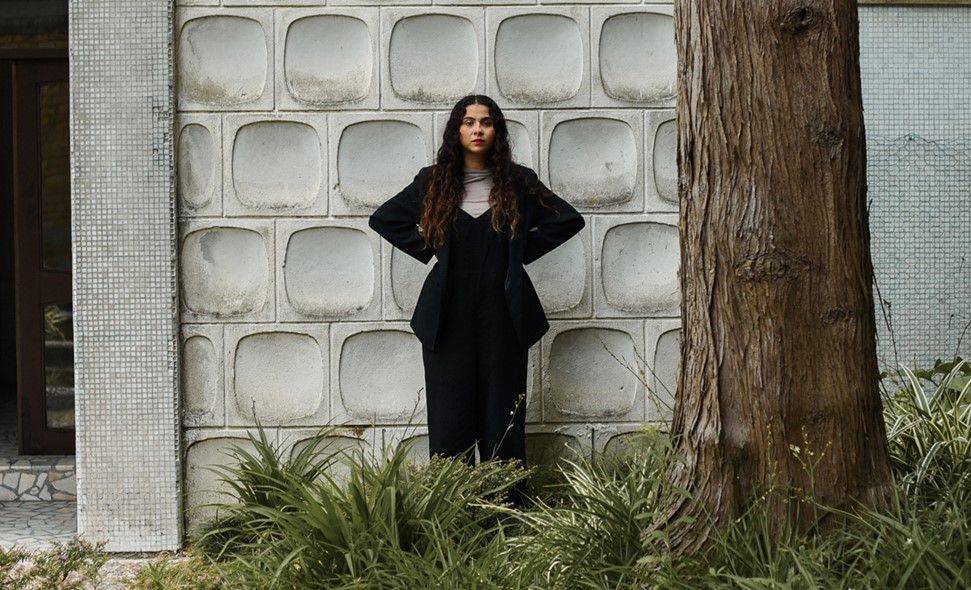The Mexican folk singer Silvana Estrada’s album Marchita was one of the most moving pieces of music of the year. “My intuition led the way,” she says before embarking on a tour that certainly will convince Europe of her talent.

'As a Latino woman, people expect you to like reggaeton. I am the exact opposite'
Silvana Estrada (25) started studying jazz in New York, but her more famous colleagues soon told her to stop playing standards and to follow her heart. In 2017, this led to her first album, Lo sagrado, that she recorded with jazz guitarist Charlie Hunter, but it was not until she returned to Mexico and made Marchita that she showed her true potential.
“The discreet, minimalist sound of this album is pretty much compatible with where I come from,” says the singer who accompanies herself on cuatro Venezolano, a four-string guitar, similar in shape to the ukulele, that gives her music an even more personal touch. “In the mountains (of the state, not the city, ed.) of Veracruz where I grew up, we are not as exuberant and colourful as people on the coast are where they are very loud, like in the Caribbean or Cuba. That calmer disposition is reflected in my songs, which are soberly arranged and enjoy loads of open space.”
The recordings took place in El Desierto, a wooden studio complex in the middle of a forest. It reminded Silvana Estrada of her carefree childhood in the country. The Estrada family home was fairly isolated but with so many musicians and neighbours visiting, she never felt alone.
“Our close community made sure of that,” the Mexican folk singer says. “My parents are both instrument makers. They had learned the trade in Cremona in Italy (the birthplace of Antonio Stradivari, ed.) and set up their workshop in Veracruz. They saw music as a way of being together. My mother played the clarinet, my father the bass and whoever wanted to, joined in.”
“For the recording of this album, I wanted to recreate that lively atmosphere. That meant that we had to spend more time in the studio. I would sometimes go hiking in the mountains early in the morning and then record some vocal lines. Late at night, if I suddenly came up with a piano or bass line, I could always just knock on the door of my crew. To me, there is no better way to form a community than to record a record together. The lady who prepared our food was also part of the team.”
Silvana Estrada’s intuition has always been strong. “It showed me the way. I learned much more at home than I did at the music school. Yet I had to go all the way to New York – I wanted to be a jazz singer there – to find out that my own music was much more special than the jazz standards I learned at the school there and that my gut feeling was right. The fact that I am getting so much praise now means a lot to me, because as a Latino woman, you are supposed to conform to a certain image: you have to dance, like reggaeton, or at least like urban music. But I am the exact opposite. My concerts are very intimate, my lyrics are fragile and candid.”
The quiet engine of her songs is the cuatro Venezolana. “I started playing on it because I had such small hands and I found a normal guitar too painful. People often ask me why I didn’t choose a guarana, a similar instrument from my own region, but my melancholic vocal lines fitted better with the sound of the cuatro, which sounds less cheerful and in-your-face.”
Marchita is a break-up record, “but because most of the tracks were written so long ago, the symbolism of the album is not the same to me anymore.” Live, Estrada will also perform new songs, including from the EP she recorded during quarantine, “when we were all sad and burned out from being at home too long. My antidote was to show a lighter version of myself, because times were already so dark.”
Read more about: Muziek , Silvana Estrada , Ancienne Belgique



